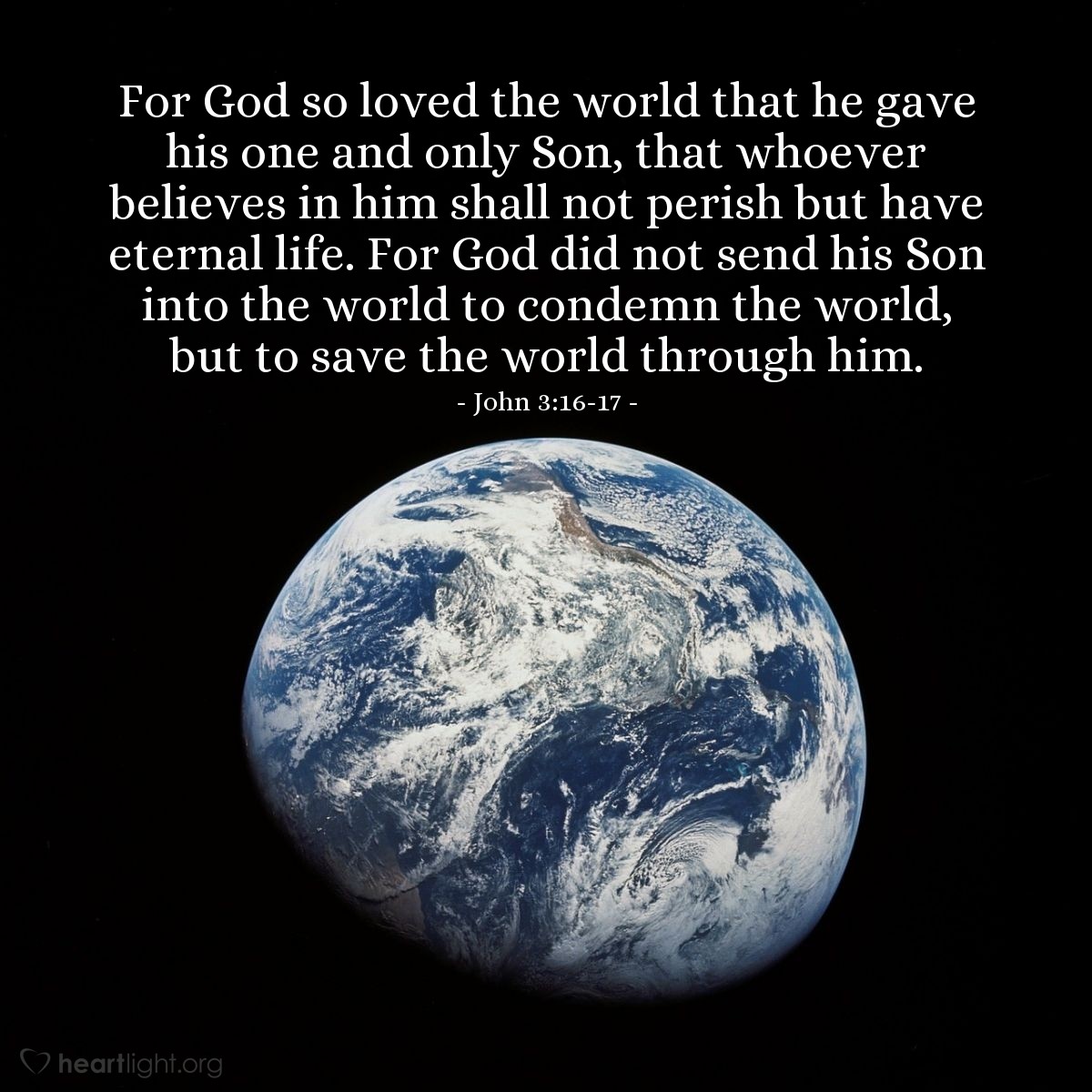And these remain, faith, hope, and love. And the greatest of these is love! (1 Corinthians 13:13 NIV).
We are on a journey to highlight, emphasize, make central, and live by What is Core. Our journey is not a quest to find something new or novel or faddish. There are plenty of those things out there.
We are NOT asking the question, "What is CORE"? We are NOT hunting around for some secret hiding place where God, or previous church leaders, have hidden "What is CORE." It is not like "What is CORE" is something hidden or hard to find in the Scriptures.
It's just that we can get so busy with our lives, so busy with our ways of doing things, and so busy with our church stuff that we misplace "What is CORE." We begin to live life without what is most important, and without is the source of everything else that is important.
We begin to live on spiritual junk food — the latest book, song, idea, video, tweet, email forward. Any or all of these may be quite good; they are not just not core. Before long, however, we are overweight with cool ideas that will quickly become passé. We find ourselves spiritually sick because we have forgotten to eat what makes us healthy, whole and gives us real and lasting life.
So we come back today and remind ourselves that LOVE is CORE.
And these remain, faith, hope, and love. And the greatest of these is love! (1 Corinthians 13:13).
The problem is, we've said the word "love" so much, that we've made love a sloppy word, loosely defined word. For example:
- I love Dr. Pepper.
- I love my wife.
- I love Mexican food.
- I love my grandkids.
- I love being outdoors.
- I love God.
- I love the Dallas Cowboys.
- I love the Texas Rangers.. oops, uh, scratch that one!
- I love my parents.
- I love to wear my berkies and not shoes.
We have made love a sloppy word by the way we use it with so many different kinds of things and things of varying levels of importance.
So why is love CORE? And if love is What is CORE, how do we understand what love means? Indeed, love has to be more than really liking refried beans, Dr. Pepper, or chocolate pie!
Our Bible passage reminds us that love is CORE. It claims it is CORE. It defines it.
"Teacher, which is the greatest commandment in the Law?"Jesus replied, "'Love the Lord your God with all your heart and with all your soul and with all your mind.' This is the first and greatest commandment. And the second is like it: 'Love your neighbor as yourself.' All the Law and the Prophets hang on these two commandments" (Matthew 22:36-40).
Jesus called loving God and loving our neighbors the GREATEST commandment — actually, the two greatest commandments. God gave us these two commands again and again in both the Old Testament and the New Testament. We are to love God and love our neighbor. Love is CORE!
And these remain, faith, hope, and love. And the greatest of these is love! (1 Corinthians 13:13).
Great. Yeah. I get it. Love is CORE! But again, what do we mean when we say the word "love"? We've already said that love is a sloppy word, so what does the word "love" mean?
If you know Victor Hugo's story, "Les Miserables", then you know the story of the man named Jean Valjean. He had served 19 hard, brutal, oppressive, dehumanizing years in a French prison doing the most demanding manual labor imaginable. He was sent there to steal a little food to help his sister feed her starving children.
Upon his parole release, no one would house him or give him food until he knocked on the door of a church and The Bishop. Much to the surprise of everyone in the house, The Bishop offered to not only feed Valjean but also gave him a place to stay. During the night, wrestling with nightmares, bitterness, and self-condemnation, Valjean got up and stole all the silver silverware. In the middle of his heist, The Bishop came in to check on the noise. He caught Valjean in his thievery, so Valjean hit him and knocked The Bishop to the ground. Valjean then ran off with the stolen silverware.
The next day, French soldiers searched his knapsack because they recognized Valjean's clothing and haircut as that of a convict. When they found the silverware in his knapsack, they returned Valjean and the stolen goods to The Bishop. While expecting The Bishop to press charges, he instead asked Valjean why he did not take the silver candlesticks, which are worth so much more than the silverware. After all, The Bishop claimed that he had "given" Valjean everything. He then gave the candlesticks to Valjean. The Bishop also demanded that Valjean be released because so much of his life had already been wasted in prison.

When the soldiers leave, Valjean is stumped, dumbfounded, and speechless. Finally, he asked why The Bishop had forgiven his thievery and his violence. Why had The Bishop offered him more than what he had stolen to begin his new life outside of prison?
The Bishop displayed the character and compassion of Christ. He chose to love his neighbor, even the neighbor who persecuted him and took advantage of his kindness. The Bishop chose to love those who considered him an enemy and turn the other cheek to Valjean who had abused him. The Bishop's behavior basically communicated the following to Valjean:
Valjean began his life as a new man. He chose to live by the principles he learned from The Bishop and ultimately from Jesus: forgive, risk sharing grace, and offer others sacrificial and all-encompassing love.
And these remain, faith, hope, and love. And the greatest of these is love! (1 Corinthians 13:13).
You see, love turns the other cheek. Love pays the price for the sins of others. Love bears injustice so that justice can be served and grace can be given. Love risks forgiving when forgiveness isn't deserved. Love makes us new people!
The Bible says it this way.
You see, at just the right time, when we were still powerless, Christ died for the ungodly. Very rarely will anyone die for a righteous person, though for a good person someone might possibly dare to die. But God demonstrates his own love for us in this: While we were still sinners, Christ died for us. ... For if, while we were God's enemies, we were reconciled to him through the death of his Son, how much more, having been reconciled, shall we be saved through his life! (Romans 5:6-10).
Notice the power of love. We were powerless, ungodly, sinners, and enemies of God. Not a resumé for getting into heaven! We were a bunch of Jean Valjeans — dangerous criminals with nothing but a yellow passport defining us as dangerous, unchangeable, and hopelessly flawed.

Jesus died for our sins. He was buried because of our sins. He was raised to life to defeat the power of our sins and give us new life because he LOVES us! And now, because of Jesus, we are sons and daughters of God. We are brothers and sisters of one another. We are princes and princesses of the King of Glory!
That is the power of love! That is why love is CORE! This kind of love is tied to Jesus and his sacrificial death for us.
And these remain, faith, hope, and love. And the greatest of these is love! (1 Corinthians 13:13).
This kind of love is so much more than just a feeling. It is not a fleeting infatuation. Biblical love is more than a surging lustful passion. Yes, God's style of love is as powerful as those things and sometimes feels like those things, but it is much more tenacious, forgiving, and enduring.
This kind of love ALWAYS demonstrates itself! Let me give you an example.
For over twenty years, I have challenged people to find me a passage that only SAYS God loves us. And every time someone says, "I found it! It was easy. It is in the most famous verse in the Bible: 'For God so loved the world... '! See, I found it!"

Yes, John 3:16 does say that God loves the world and that he loves us. But look more closely at what it says: "For God so loved the world, that he GAVE..." (John 3:16). God doesn't just have feelings of love for us; he defined his love by his sacrificial action: "For God so loved the world that he GAVE..." In the Bible, God's love is always accompanied by a demonstration of that love!
Some folks have defined this kind of love by comparing the Greek words for love — agape, philia, eros, storge. The winner, of course, is always agape — the kind of love and the word you often find in the New Testament. Interestingly, however, when the inspired writers composed the letters, gospels, and documents of the New Testament, agape was used pretty much like our word for love. The term agape was used loosely in Greek before Jesus. It was used for everything from loving wine, food, chariot races, children, spouses, and God!
Then something happened to the definition of agape. John and Paul used the word agape and tied it to what God did through Jesus' incarnation, ministry, and the cross. They had Jesus' sacrifice define agape to fashion it into the meaning we know today — some form of unconditional and sacrificial love. Jesus' life, death, and resurrection transformed the meaning of agape rather than agape defining what Jesus did!
The New Testament writers defined love as what God did and continues to do for us. The ultimate example is sending Jesus and Jesus willingly giving his life for our sins. When we make love (agape) what is CORE for us, we are following the example of our Father and our Lord Jesus, empowered by the Spirit who pours this love into our hearts continually (Romans 5:5):
This is how we know what love is: Jesus Christ laid down his life for us. And we ought to lay down our lives for our brothers and sisters.
... This is how God showed his love among us: He sent his one and only Son into the world that we might live through him. This is love: not that we loved God, but that he loved us and sent his Son as an atoning sacrifice for our sins. Dear friends, since God so loved us, we also ought to love one another (1 John 3:16, 4:9-11).
What would have happened to Jean Valjean if The Bishop had said, "I love you man!" but never offered him a place to stay, food to eat, and then turned the other cheek to forgive his violence and thievery and to proclaim his innocence as he set him free?
Love is what we do with our passion and compassion for others!
Love, and its actions, are often costly and messy — so much more than a fleeting sentiment. God-like agape is real, gut-level, hands-on, acting to redeem and bless another at our cost love!
That is the power of love! That is why love is CORE!
And these remain, faith, hope, and love. And the greatest of these is love! (1 Corinthians 13:13).
Second, our love doesn't come first. Love doesn't begin with us. We are not the initiators of this kind of love. This Jesus-styled love is far more than mere obedience to love God and responding to the love shown to us by others. This love willingly sacrifices for others regardless of how they will react to our sacrifices for them.
How do I know this?
Jesus died for our sins!
Say that out loud: Jesus died for our sins!
That means that our love is always a response to God, who demonstrated love to us first.
Our love is rooted in Jesus and his sacrificial love for us when we were unworthy and unlovable (Romans 5:6-10).

We love, because God first loved us! (1 John 4:19).
We were loved overwhelmingly, sacrificially, and undeservedly when we were powerless, ungodly sinners and enemies!
So when we love God with all that we are, and when we love our neighbor as ourselves, our impact on others brings about new people — new Jean Valjean's — to new lives!
And it brings us the reminder of who we are and what we are about and why we are here, and What is Core: loving God and loving others like Jesus!
So we come back today and remind ourselves that LOVE is CORE.
And these remain, faith, hope, and love. And the greatest of these is love! (1 Corinthians 13:13).
Which brings me back to the questions we are asking each week:
- Do I believe this?
- Do I let this change who I am?
- Do I let this guide me to what is important in life, in fellowship, in worship, and in doctrine?
How can I not when I've been loved so graciously by God?
Which brings us to the questions we want to ask each week of our series:
- Do I believe this?
- Do I let this change who I am?
- Do I let this guide me to what is important in life, in fellowship, in worship, and in doctrine?
How can we not?

- Jesus!
- Believing
- Disciple-making
- Going
- Baptizing
- Training
- Loving
- Communing
- Worshiping
- Finishing
Special thanks for the use of images related to Jesus' ministry from The Lumo Project and Free Bible Images.









Reader Comments
Archived Facebook Comments